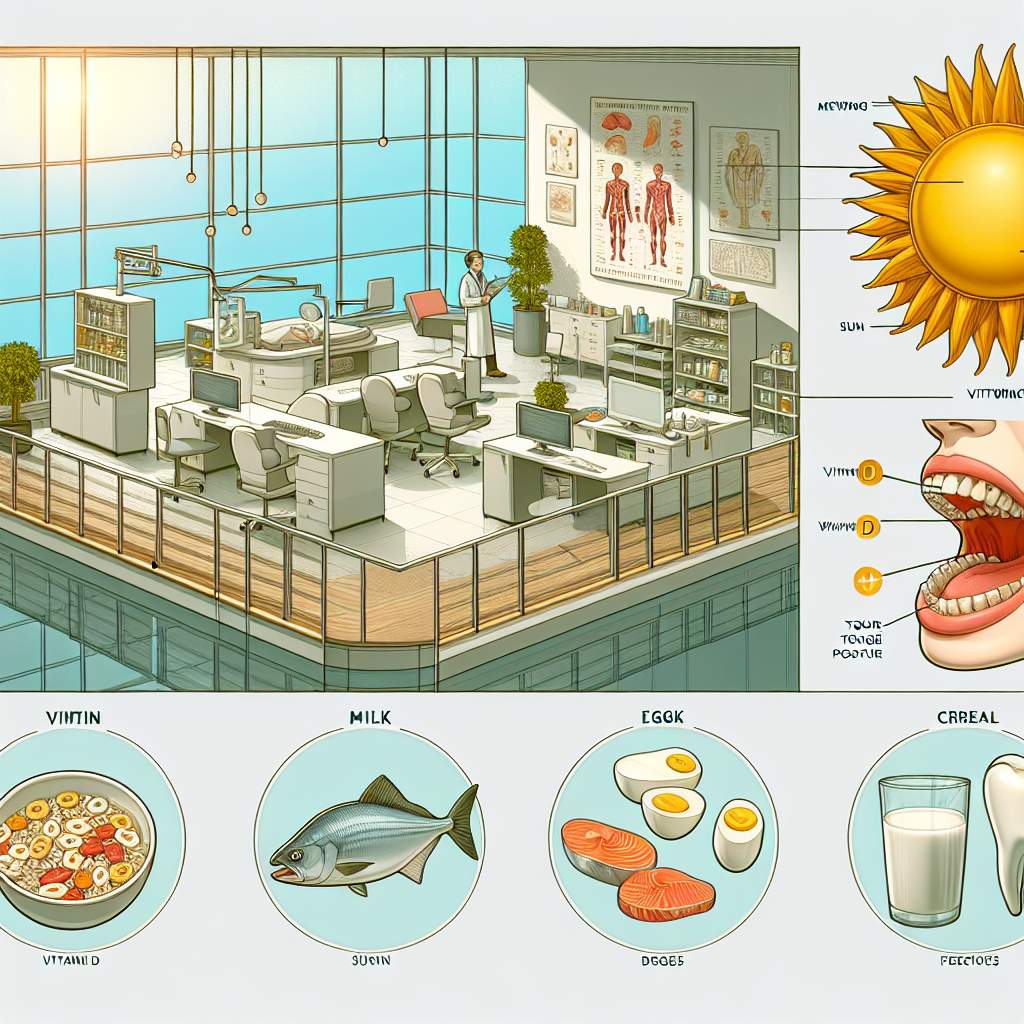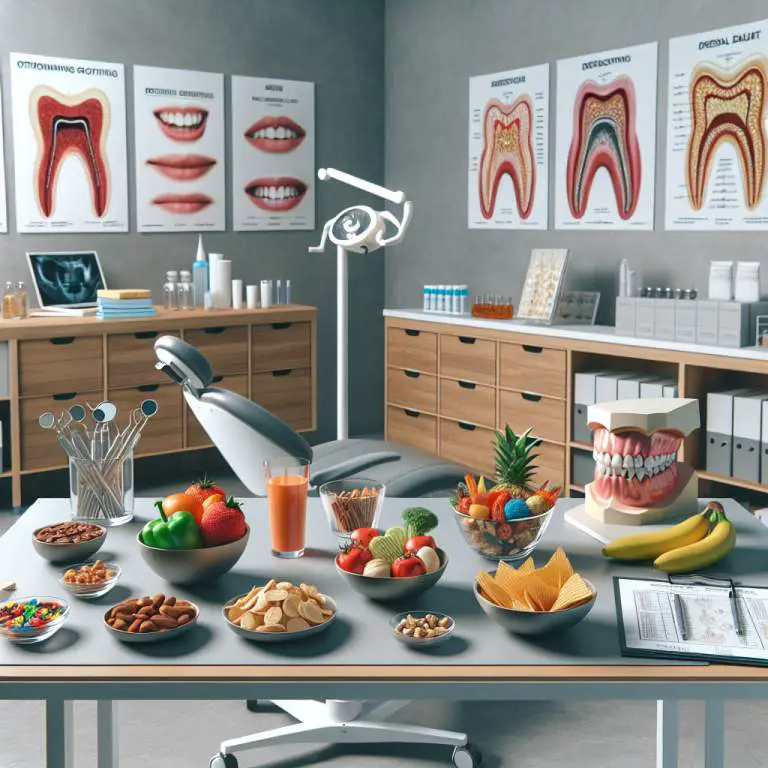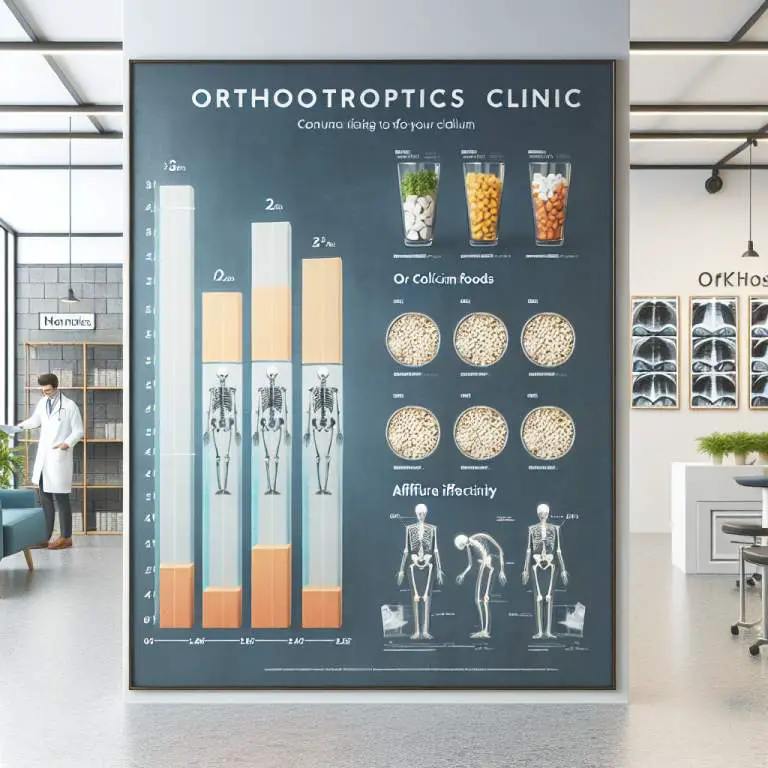How important is vitamin D for jaw development and mewing success?
Vitamin D is very important for jaw development and the success of mewing. It helps our bodies use calcium, which strengthens bones, including those in our jaw. For people practicing mewing, which aims to reshape the jawline through tongue posture, having strong bones can make the process more effective. So, getting enough vitamin D is key for good results.

How Does Vitamin D Influence Bone Health and Development?
Vitamin D is super important for our bones, including how they grow and stay strong. When we get enough vitamin D, it helps our body absorb calcium from the food we eat. Calcium is like the building block of our bones, making them strong and healthy.
If someone doesn’t get enough vitamin D, their bones might not develop properly or could become weak. This is especially true for kids and teenagers whose bones are still growing. So, getting enough vitamin D is key to having strong bones that can support your body and help you move around easily.
What Role Does Vitamin D Play in Jaw Development Specifically?
Vitamin D doesn’t just help with bones all over your body; it has a special role in making sure your jaw develops the right way too. A strong and well-formed jaw depends on good bone health, which vitamin D supports by helping with calcium absorption.
For kids and young people, getting enough vitamin D can mean their jaws grow properly, which is important for things like having straight teeth and a proper bite. It’s kind of like how a plant needs sunlight to grow right; our jaws need vitamin D to develop properly.
Can Vitamin D Deficiency Affect the Results of Mewing?
Mewing is this technique where you position your tongue in a certain way to potentially improve how your jaw looks. But if you’re not getting enough vitamin D, it might be harder to see good results from mewing. Since vitamin D is so crucial for bone health, a deficiency could mean that your jaw isn’t as strong or well-shaped as it could be.
This doesn’t mean mewing won’t work at all if you’re low on vitamin D, but ensuring you have enough of this nutrient could help make the most out of mewing. It’s like giving your jaw the best chance to respond well to the exercises by making sure it’s as healthy as possible first.
How Can You Ensure Adequate Vitamin D Levels for Optimal Mewing Results?
To make sure you’re getting enough vitamin D for good bone health and potentially better mewing results, there are a few things you can do. First off, spending some time in sunlight each day can help because our skin makes vitamin D when it’s exposed to sun. Just remember to wear sunscreen to protect your skin!
You can also eat foods that are rich in vitamin D like fish, egg yolks, and fortified milk or orange juice. Some people might even need to take a vitamin D supplement if they don’t get enough from sunlight or food alone. It’s always a good idea to talk with a doctor before starting any new supplement though.
| Vitamin D Aspect | Importance for Mewing |
|---|---|
| Calcium Absorption | Enhances calcium absorption in the gut, crucial for bone mineralization and strength. |
| Bone Growth and Remodeling | Regulates bone remodeling and growth, essential for jaw development and alignment. |
| Muscle Function | Improves muscle function around the jaw, supporting proper mewing technique. |
| Immune System Support | Maintains immune health, reducing the risk of oral infections that could impact mewing practices. |
| Hormonal Balance | Influences hormonal balance, potentially affecting facial bone structure and development. |
Are There Other Vitamins or Minerals That Support Jaw Development and Mewing Success?
Vitamins A, C, and K2, along with minerals like calcium and magnesium, are crucial for jaw development and the success of mewing. These nutrients work together to strengthen bones and teeth. They also help in the proper growth of the jaw.
Vitamin A supports cell growth and helps in the development of both upper and lower jawbones. Vitamin C is essential for collagen production, which is vital for gum health. K2 works with vitamin D to ensure calcium goes to the right places, like your bones and teeth.
How Should One Incorporate These Nutrients Into Their Diet or Routine for Mewing?
To get these important vitamins and minerals, eating a balanced diet is key. Foods rich in vitamins A, C, K2, calcium, and magnesium should be part of your daily meals. For example, dairy products for calcium and vitamin K2; citrus fruits for vitamin C; carrots for vitamin A; nuts and seeds for magnesium.
Besides diet, supplements can also help if you’re not getting enough from food alone. However, it’s best to talk to a healthcare provider before starting any supplement regimen. This ensures you take the right amounts without risking your health.
What Are the Signs of Vitamin D Deficiency to Look Out For When Practicing Mewing?
If you’re practicing mewing but not seeing expected results, it might be due to a lack of vitamin D. Signs of deficiency include fatigue, bone pain, muscle weakness or cramps, mood changes like depression or irritability. These symptoms can affect how well you can maintain proper mewing technique.
Severe vitamin D deficiency may lead to bone deformities such as rickets in children or osteomalacia in adults. If you notice any signs of deficiency while mewing, it’s important to get your levels checked by a professional.
Final Thoughts
Mewing requires more than just technique; it needs support from a healthy diet rich in specific vitamins and minerals. Ensuring you have enough vitamins A, C, K2 along with calcium and magnesium can significantly impact your success with mewing.
If you suspect a deficiency in any essential nutrient like vitamin D while practicing mewing techniques—don’t ignore it! Consult with a healthcare provider to address any deficiencies promptly. Remember that achieving optimal results from mewing involves taking care of your overall health too.







